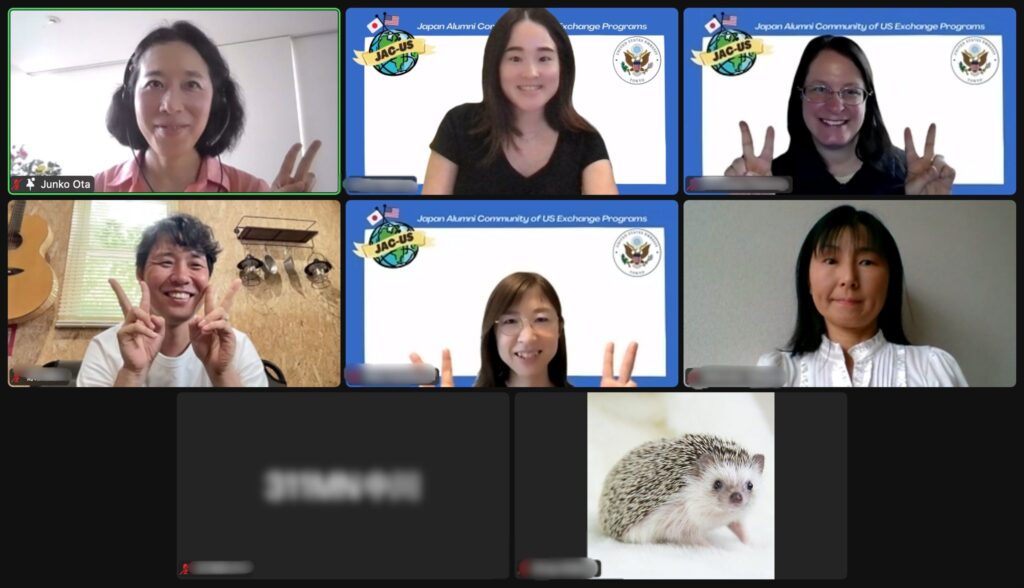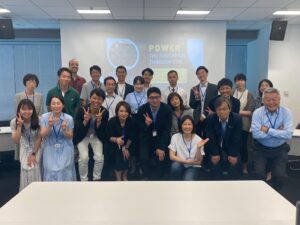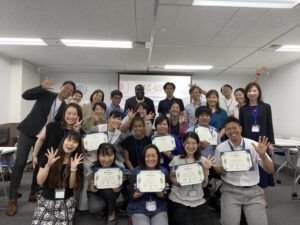[Webinar Report] 6/25 JAC-US WEBINAR COURSE #5(Final)

The final session in the 2023 JAC-US webinar series on diversity, equity and inclusion took place on June 25 with Ms. Junko Ota, Policy Researcher at the Institute for Global Environmental Strategies (IGES). At IGES, Ms. Ota is committed to localizing global issues such as climate change and the SDGs so that communities and individuals can understand the impact of their actions. She also serves as a member of the Kitakyushu City Environmental Council and the city’s SDGs Future City Award committee, as well as a part-time lecturer at the Kyushu Institute of Technology.
Ms. Ota studied at state universities in Hawaii and New Jersey and wrote her master's thesis on the Kyoto Protocol from the perspective of equality and efficiency. Serving as an expert researcher at the Ministry of Foreign Affairs of Japan, she was based at the Japanese Embassy in Germany where she was a liaison with United Nations Framework Convention on Climate Change (UNFCCC) on international negotiations for the Kyoto Protocol. She continues to be involved in international negotiations for the Paris Agreement (COP) as a member of the Japanese government delegation.
Ms. Ota used her extensive experience to guide participants through the process of how climate justice and equity are addressed at the international negotiating table at the Conference of the Parties (COP) to the UNFCCC (Kyoto Protocol and Paris Agreement). She spoke about climate change and the Paris Agreement, signed by 196 nations in 2015 to "hold the increase in the global average temperature well below 2℃ above pre-industrial levels and pursue efforts to limit this to 1.5℃” through mitigation, adaptation and financing, and highlighted the new approach utilized by the Paris Agreement (December 2015, UNFCCC-COP21 in Paris) and the Sustainable Development Goals (September 2015, UN General Assembly in New York) of backcasting. Ms. Ota also provided participants with an inside look at how COP meetings are structured and how different actors have their voices heard and reflected in these international agreements, as well as how youth around the world are demanding ambitious action.
Ms. Ota also spoke about how climate justice and equity can be looked at from different perspectives: by developed and developing countries, by generation and by industrial transition. With 15 countries emitting over 70% of the world’s CO2 emissions, and the amount of CO2 emitted per person/year ranging from a low of 0.1 ton to a high of 14.7 tons, the issues of climate justice and equity will need to be addressed in order to maintain the 1.5℃ target under the Paris Agreement, equivalent to a reduction to 2.5 tons per person by 2030 and 0.7 tons per person by 2050.
Ms. Ota talked about how mitigation and adaptation approaches have been used in the past to address climate change issues, but that dialogue at the COP27 meeting in Africa (called the “Adaptation COP”) went beyond adaptation into “loss and damage”, such as damage to housing and agricultural products, loss of ecosystems, islands, and traditional knowledge, and the displacement of people. This ultimately led to agreement on the need for financial arrangements for loss and damage (Article 8 to avert, minimize and address loss and damage due to the effects of climate change.
This hour-long session also included breakout rooms where participants had opportunities to discuss different scenarios, such as the reduction of one ton of CO2 from the perspective of equity vs. efficiency, and who should be responsible for paying into a potential fund for loss and damage from the impacts of climate change.
We were honored to have Ms. Ota guide us through the intricacies of negotiations and catch a glimpse of how climate justice and equity are being reflected in dialogue at the international level.


